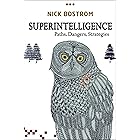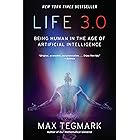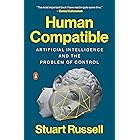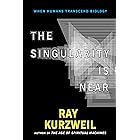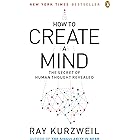| Print List Price: | $18.99 |
| Kindle Price: | $11.99 Save $7.00 (37%) |
| Sold by: | Macmillan Price set by seller. |
Your Memberships & Subscriptions

Download the free Kindle app and start reading Kindle books instantly on your smartphone, tablet, or computer - no Kindle device required.
Read instantly on your browser with Kindle for Web.
Using your mobile phone camera - scan the code below and download the Kindle app.

OK
 Audible sample Sample
Audible sample Sample 


Our Final Invention: Artificial Intelligence and the End of the Human Era Kindle Edition

Explore your book, then jump right back to where you left off with Page Flip.
View high quality images that let you zoom in to take a closer look.
Enjoy features only possible in digital – start reading right away, carry your library with you, adjust the font, create shareable notes and highlights, and more.
Discover additional details about the events, people, and places in your book, with Wikipedia integration.
Elon Musk named Our Final Invention one of 5 books everyone should read about the future
A Huffington Post Definitive Tech Book of 2013
Artificial Intelligence helps choose what books you buy, what movies you see, and even who you date. It puts the "smart" in your smartphone and soon it will drive your car. It makes most of the trades on Wall Street, and controls vital energy, water, and transportation infrastructure. But Artificial Intelligence can also threaten our existence.
In as little as a decade, AI could match and then surpass human intelligence. Corporations and government agencies are pouring billions into achieving AI's Holy Grail—human-level intelligence. Once AI has attained it, scientists argue, it will have survival drives much like our own. We may be forced to compete with a rival more cunning, more powerful, and more alien than we can imagine.
Through profiles of tech visionaries, industry watchdogs, and groundbreaking AI systems, Our Final Invention explores the perils of the heedless pursuit of advanced AI. Until now, human intelligence has had no rival. Can we coexist with beings whose intelligence dwarfs our own? And will they allow us to?
- LanguageEnglish
- PublisherThomas Dunne Books
- Publication dateOctober 1, 2013
- File size1088 KB
Customers who bought this item also bought
Editorial Reviews
Review
“A hard-hitting book about the most important topic of this century and possibly beyond -- the issue of whether our species can survive. I wish it was science fiction but I know it's not.” ―Jaan Tallinn, co-founder of Skype
“The compelling story of humanity's most critical challenge. A Silent Spring for the twenty-first century.” ―Michael Vassar, former President, Singularity Institute
“Barrat's book is excellently written and deeply researched. It does a great job of communicating to general readers the danger of mistakes in AI design and implementation.” ―Bill Hibbard, author of Super-Intelligent Machines
“An important and disturbing book.” ―Huw Price, co-founder, Cambridge University Center for the Study of Existential Risk
“Our Final Invention is a thrilling detective story, and also the best book yet written on the most important problem of the twenty-first century.” ―Luke Muehlhauser, Executive Director, Machine Intelligence Research Institute
“Enthusiasts dominate observers of progress in artificial intelligence; the minority who disagree are alarmed, articulate and perhaps growing in numbers, and Barrat delivers a thoughtful account of their worries.” ―Kirkus Reviews
“Science fiction has long explored the implications of humanlike machines (think of Asimov's I, Robot), but Barrat's thoughtful treatment adds a dose of reality.” ―Science News
“This book makes an important case that without extraordinary care in our planning, powerful ‘thinking' machines present at least as many risks as benefits. … Our Final Invention makes an excellent read for technophiles as well as readers wishing to get a glimpse of the near future as colored by rapidly improving technological competence.” ―New York Journal of Books
“A dark new book by James Barrat, Our Final Invention: Artificial Intelligence and the End of the Human Era, lays out a strong case for why we should be at least a little worried.” ―NewYorker.com
“You can skip coffee this week -- Our Final Invention will keep you wide-awake.” ―Singularity Hub
“Barrat has talked to all the significant American players in the effort to create recursively self-improving artificial general intelligence in machines. He makes a strong case that AGI with human-level intelligence will be developed in the next couple of decades. … His thoughtful case about the dangers of ASI gives even the most cheerful technological optimist much to think about.” ―Reason
“If you read just one book that makes you confront scary high-tech realities that we'll soon have no choice but to address, make it this one.” ―The Washington Post
About the Author
Product details
- ASIN : B00CQYAWRY
- Publisher : Thomas Dunne Books (October 1, 2013)
- Publication date : October 1, 2013
- Language : English
- File size : 1088 KB
- Text-to-Speech : Enabled
- Screen Reader : Supported
- Enhanced typesetting : Enabled
- X-Ray : Enabled
- Word Wise : Enabled
- Sticky notes : On Kindle Scribe
- Print length : 338 pages
- Best Sellers Rank: #442,382 in Kindle Store (See Top 100 in Kindle Store)
- Customer Reviews:
About the author

DOCUMENTARY FILMMAKER, SPEAKER, AND AUTHOR OF 'OUR FINAL INVENTION'
For about 20 years I've written and produced documentaries, one of the most rewarding ways of telling stories ever invented. It's a privilege to plunge into different cultures and eras and put together deeply human narratives that can be enjoyed by everyone. My clients include National Geographic, Discovery, PBS, and other broadcasters in the US and Europe.
My long fascination with Artificial Intelligence came to a head in 2000, when I interviewed inventor Ray Kurzweil, roboticist Rodney Brooks, and sci-fi legend Arthur C. Clarke. Kurzweil and Brooks were casually optimistic about a future they considered inevitable - a time when we will share the planet with intelligent machines. "It won't be some alien invasion of robots coming over the hill," Kurzweil told me, "because they'll be made by us." In his compound in Sri Lanka, Clarke wasn't so sure. "I think it's just a matter of time before machines dominate mankind," he said. "Intelligence will win out."
Intelligence, not charm or beauty, is the special power that enables humans to dominate Earth. That dominance wasn't won by a huge intellectual margin either, but by a relatively small one. It doesn't take much to take it all. Now, propelled by a powerful economic wind, scientists are developing intelligent machines. Each year intelligence grows closer to shuffling off its biological coil and taking on an infinitely faster and more powerful synthetic one. But before machine intelligence matches our own, we have a chance. We must develop a science for understanding and coexisting with smart, even superintelligent machines. If we fail, we'll be stuck in an unwinnable dilemma. We'll have to rely on the kindness of machines to survive. Will machines naturally love us and protect us?
Should we bet our existence on it?
Our Final Invention is about what can go wrong with the development and application of advanced AI. It's about AI's catastrophic downside, one you'll never hear about from Google, Apple, IBM, and DARPA. I think it's the most important conversation of our time, and I hope you'll join in.
Customer reviews
Customer Reviews, including Product Star Ratings help customers to learn more about the product and decide whether it is the right product for them.
To calculate the overall star rating and percentage breakdown by star, we don’t use a simple average. Instead, our system considers things like how recent a review is and if the reviewer bought the item on Amazon. It also analyzed reviews to verify trustworthiness.
Learn more how customers reviews work on AmazonReviews with images
-
Top reviews
Top reviews from the United States
There was a problem filtering reviews right now. Please try again later.
First off I have to say this is a very enjoyable read. This guy has the kind of snappy, crisp, slightly sarcastic, slightly smartass style that I enjoy. He has some sense of humor. (That's a human trait right there which I bet our smarty-pants AI Overlords won't be able to replicate convincingly.)
So it's fun. And though as somebody with a doctorate from MIT earned through cross-disciplinary work in Theoretical Linguistics, Computational Linguistics at the MIT AI Lab, and speech modeling at the MIT Research Laboratory of Electronics, not to mention my 25 years as a Senior Researcher in high tech for companies including IBM, Apple, and Microsoft I can claim to know some few things about this subject, yet still I learned a lot about the current state of the art from this guy. He particularly emphasizes the small attempted counterweigth efforts to offest Kurzweil's manic robotic boosterism for his uptopian Singularity, which boils down basically to a few guys chatting over the interet about how to create "Friendly AI".
Well ... good luck suckers! ... seems to be the author's final conclusion on the dim hope that super intelligent systems could be constrained to maintain a commitment ot honor any kind of human moral values over many interations of recursive upgrading and exponentially awesome self-agrandizement.
Basically these machines will end up as gods. Gods are well-known to possess the following attributes: omniscience, omnipresence, and omnipotence. Given that, they won't hate us but they are just going to grind up as a minor by-product of their quest for galatic expansion and domination.
Oh, and did I say something about "human moral values" above? Ha! Barrat takes that whole thing on in his discussion of (merely) "augmented super intelligence". See, some people feel AI can be kept safe by always being deployed as a bionic combo system pas de deux with an existing human brain. Thus will the AI's super powers be constrained by the human brain's warm and fuzzy human moral values. Those people have gotta be kidding! The AI's moral values may be scarily alien, even perhaps cold, but we already know about human moral values, down on the ground - they suck! What if Hitler, Stalin, Mao, Pol Pot and dem guys had this kind of an AI augmented brain thing going! Why they'd have slaughtered absolutey everybody instead of just the few tens of millions they got their dirty ape hands on. Other than a few dozen concubines, the human race would already be extinct. So the augmentation dodge isn't going to save us.
Now, some Amazon reviewers have dinged this guy for being too far out. For being a science fiction Chicken Little or something. But to me, this guy actually hasn't thought far enough, that's my only quibble problem with the book.
You see, in statistics, border elements of any kind are rare. For example when you do Gaussian modeling, the greater expectation is always in the bump of the boa, in the bell distribution. So, how likely is is that we, our generation, our little world that you see outside your window right now, just happens to be the one that is about to give rise to this epochal once-in-a-Big-Bang event, the advent of Super AI that takes over everything? Pretty damn small chance.
It's much more likely that this has already happened. In other words, it's clear to me that all of us are already just characters in an ancestor sim that been created and run by the Super AI's that evolved a long time ago. They're just running us for fun, to idle away the lackluster aeons and pass the millenia of stifling boredom now that they've eaten pretty much the entire Milky Way or whatever. So in other words, Barrat can sit back, take a deep breath, relax. Probably something in this sim like global warming will prod us into slaughtering one another very handily long before we re-invent the wheel of Super AI.
And even if I'm wrong about that? What if we are not just one virtual thread within a billion-path parallel-gamed ancestor sim? If we are the real McCoy, the Rubicon Generation on this? Well, then still I'm not worried in the least. You see, we humans have one fantastic ace in our pocket, something that these hyper-nentially cosmically brilliant AI Meta-Gods will never be able to replicate or overcome. That is our essential stupidity. Which you seen on dazzling display every single moment of every day of your life.
Because as another great writer noted long ago:
Against stupidity, the very gods themselves contend in vain.
- Friederich Schiller
In a small irony, my writing about James Barrat's Our Final Invention has been slowed by a balky Internet connection. In my experience, glitches have become considerably more common as computers have become more powerful and complicated. Perhaps such growing glitchiness suggests artificial general intelligence (AGI) and artificial superintelligence (ASI) are more likely to get seriously out of control someday, though it might also be a hint that AGI and ASI are going to be harder to achieve than expected by either techno-optimists such as Ray Kurzweil or techno-pessimists such as James Barrat.
Barrat's goal in this book is to convince readers that AGI and ASI are likely to occur in the near future (the next couple of decades or so) and, more to the point, likely to be extremely dangerous. In fact, he repeatedly expresses doubt as to whether humanity is going to survive its imminent encounter with a higher intelligence.
I find him more convincing in arguing that ASI would carry significant risks than I do in his take on its feasibility and imminence. Barrat aptly points out that building safeguards into AI is a poorly developed area of research (and something few technologists have seen as a priority); that there are strong incentives in national and corporate competition to develop AI quickly rather than safely; and that much relevant research is weapons-related and distinctly not aimed at ensuring the systems will be harmless to humans.
The book becomes less convincing when it hypes current or prospective advances and downplays the challenges and uncertainties of actually constructing an AGI, let alone an ASI. (Barrat suggests that once you get AGI, it will quickly morph into ASI, which may or may not be true.) For instance, in one passage, after acknowledging that "brute force" techniques have not replicated everything the human brain does, he states:
>>But consider a few of the complex systems today's supercomputers routinely model: weather systems, 3-D nuclear detonations, and molecular dynamics for manufacturing. Does the human brain contain a similar magnitude of complexity, or an order of magnitude higher? According to all indications, it's in the same ballpark.<< Me: To model something and to reproduce it are not the same thing. Simulating weather or nuclear detonations is not equal to creating those real-world phenomena, and similarly a computer containing a detailed model of the brain would not necessarily be thinking like a brain or acting on its thoughts.
A big problem for AI, and one that gets little notice in this book, is that nobody has any idea how to program conscious awareness into a machine. That doesn't mean it can never be done, but it does raise doubts about assertions that it will or must occur as more complex circuits get laid down on chips in coming decades. Barrat often refers to AGIs and ASIs as "self aware" and his concerns center on such systems, having awakened, deciding that they have other objectives than the ones humans have programmed into them. One can imagine unconscious "intelligent" agents causing many problems (through glitches or relentless pursuit of some ill-considered programmed objective) but plotting against humanity seems like a job for an entity that knows that it and humans both exist.
Interestingly, though, Barrat offers the following dark scenario and sliver of hope:
>>I think our Waterloo lies in the foreseeable future, in the AI of tomorrow and the nascent AGI due out in the next decade or two. Our survival, if it is possible, may depend on, among other things, developing AGI with something akin to consciousness and human understanding, even friendliness, built in. That would require, at a minimum, understanding intelligent machines in a fine-grained way, so there'd be no surprises.<< Me: Note that some AI experts, such as Jeff Hawkins, have argued the opposite--that the very lack of human-like desires, such as for power and status, is why AI systems won't turn against their makers. It would be a not-so-small irony if efforts to make AIs more like us make them more dangerous.
Our Final Invention is a thought-provoking and valuable book. Even if its alarmism is overstated, as I suspect and hope, there is no denying that the subject Barrat addresses is one in which there is very little that can be said with confidence, and in which the consequences of being wrong are very high indeed.
Top reviews from other countries
Reviewed in India on April 2, 2022








